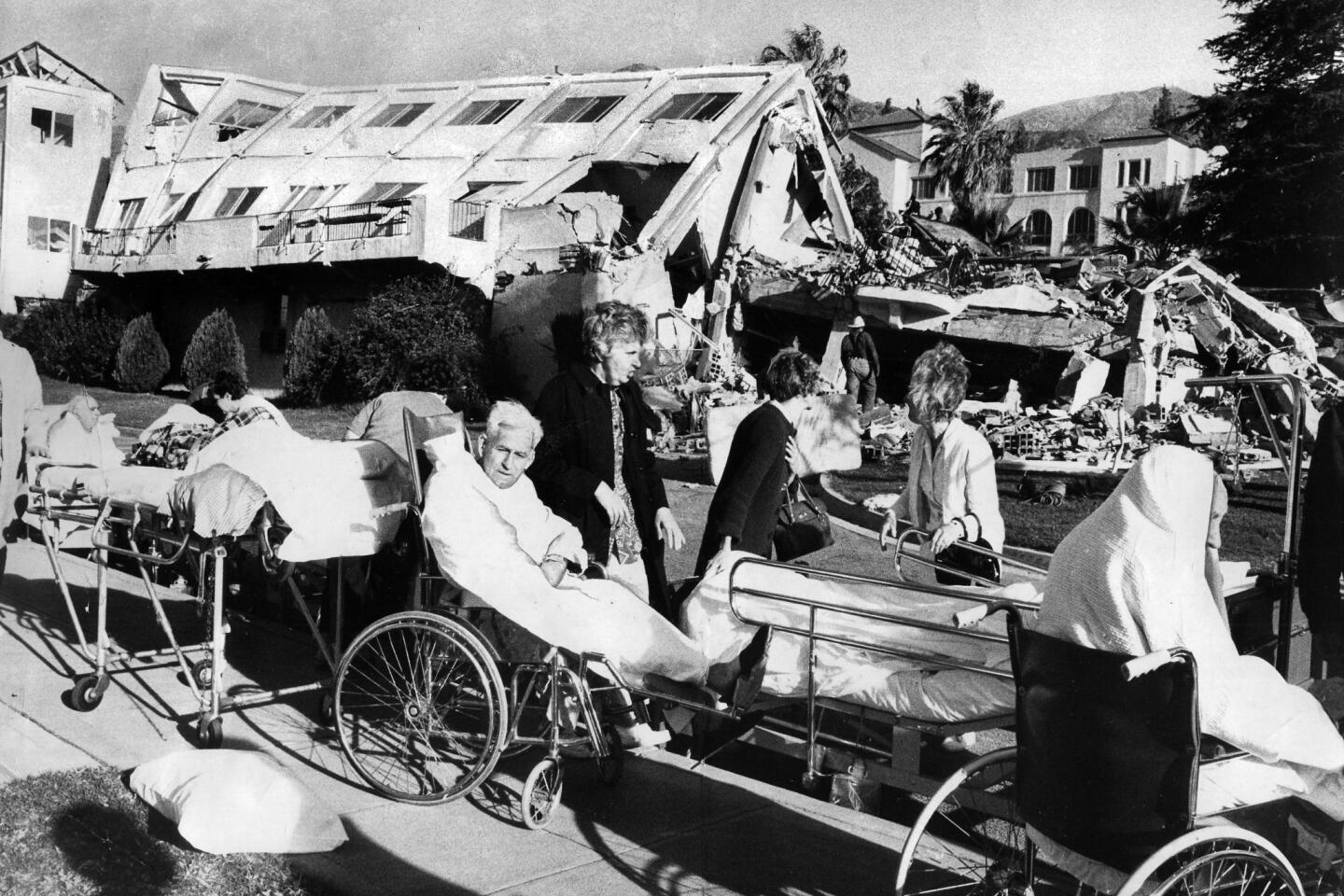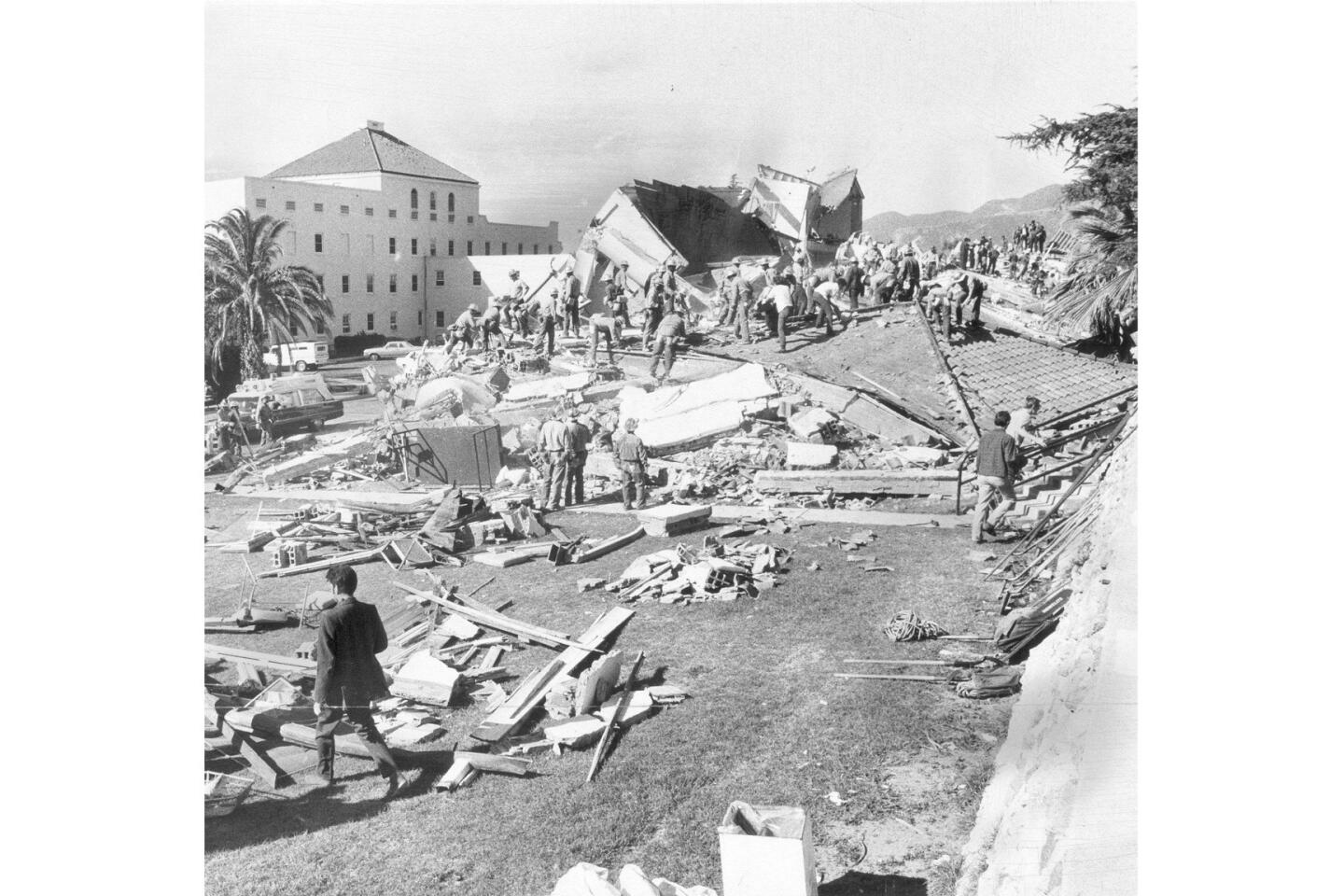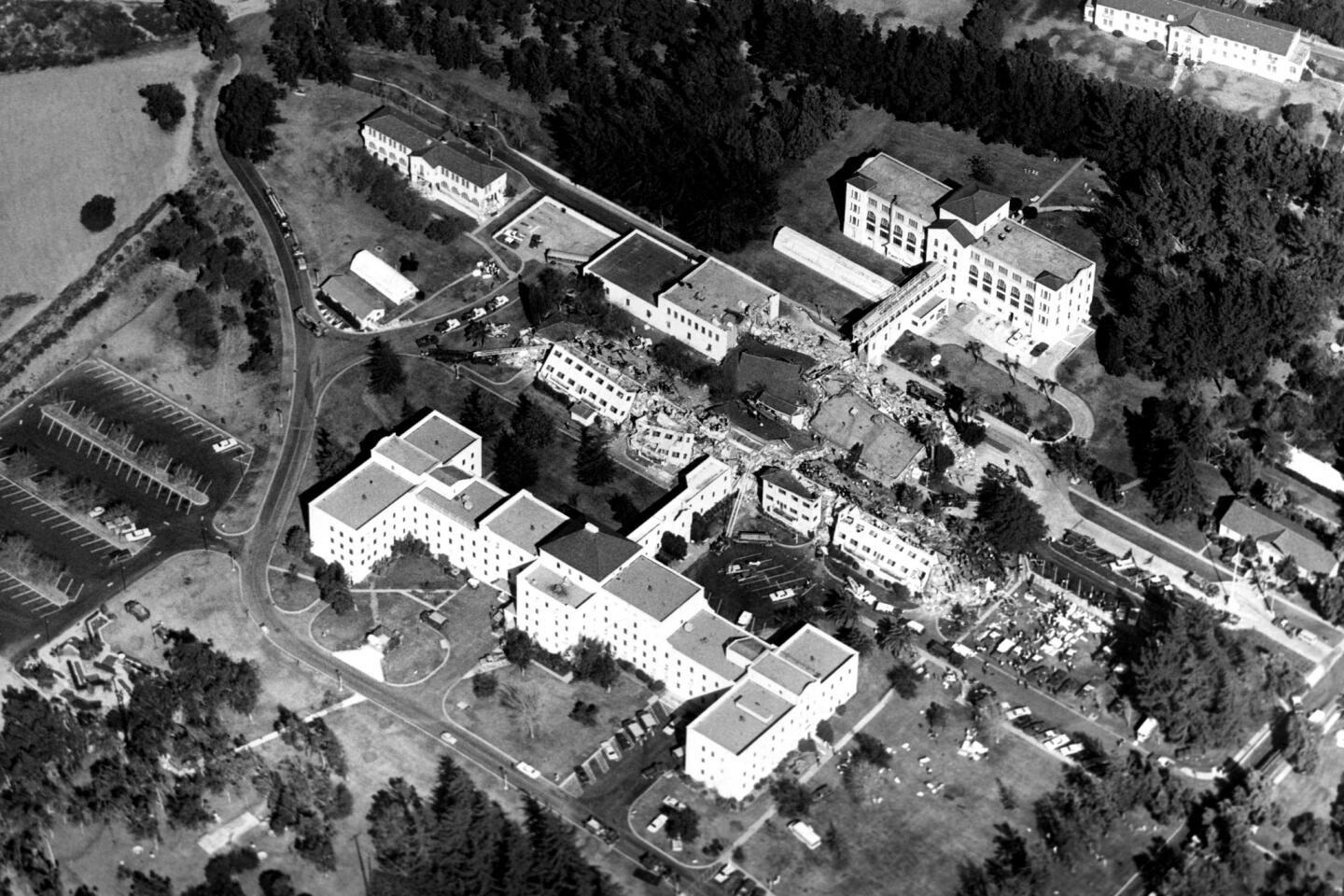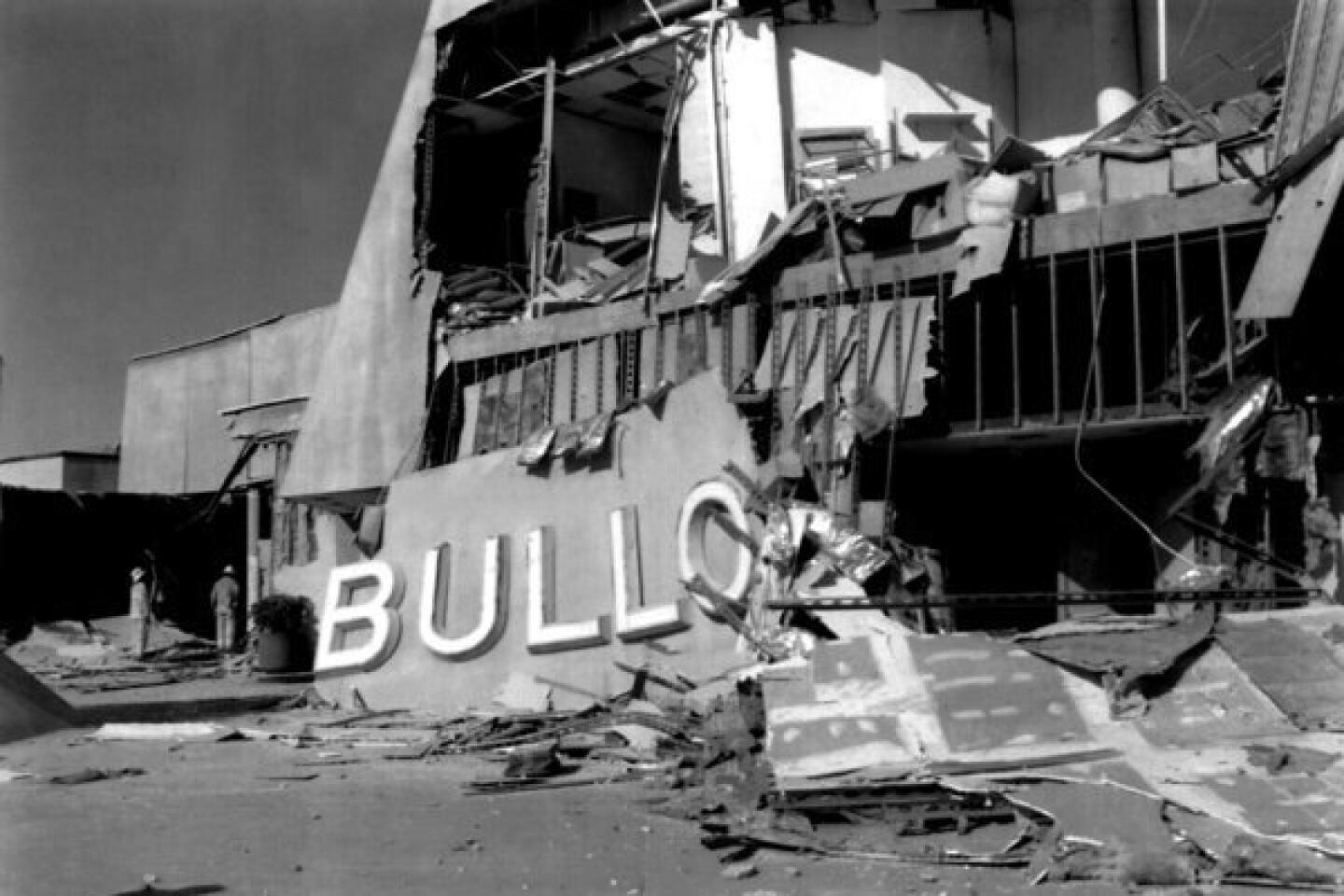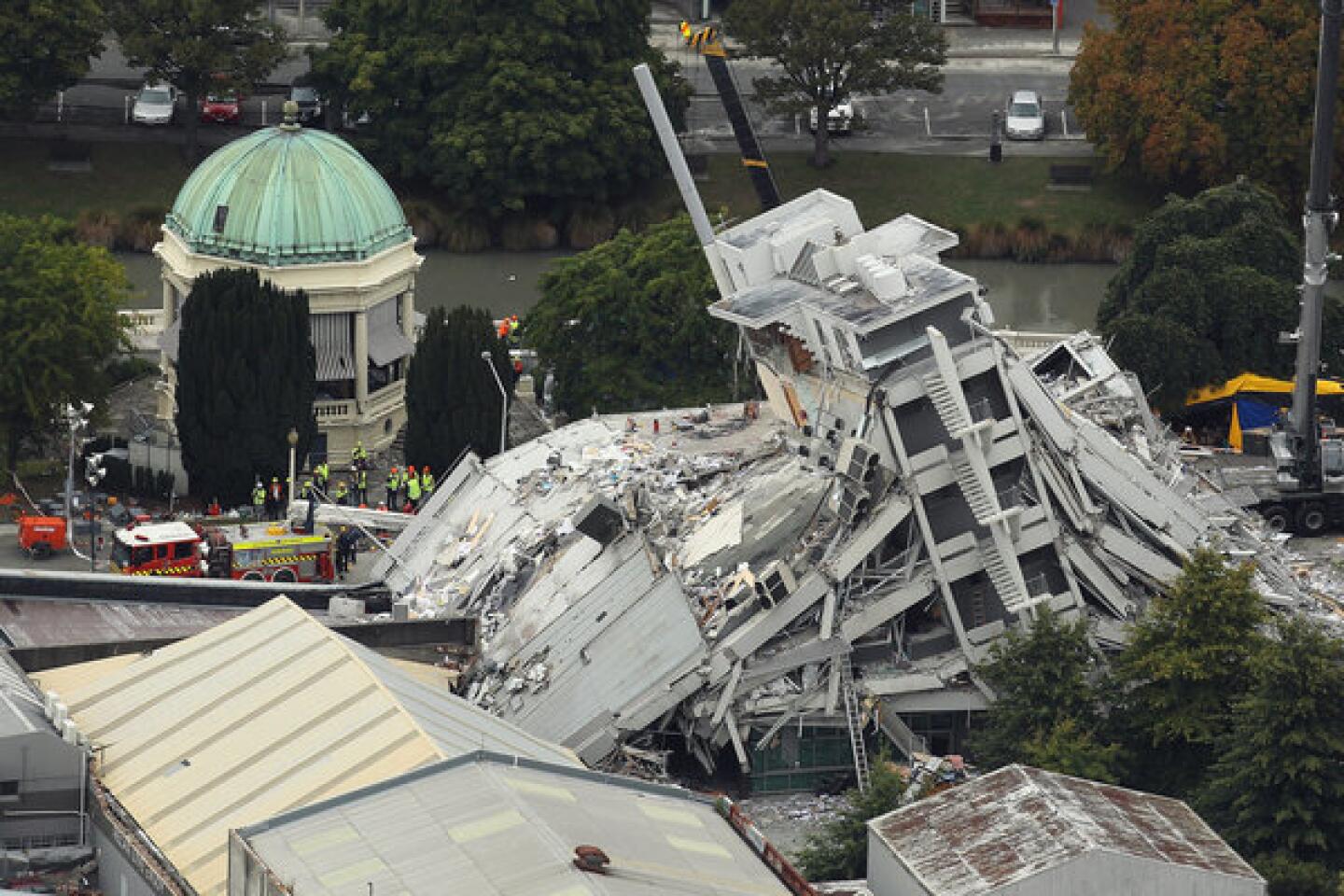L.A. formally requests quake researchers’ list of at-risk buildings
Ending days of mixed messages, the city of Los Angeles sent a request Thursday formally asking a UC Berkeley engineering professor for a list of concrete buildings that could be at risk of collapsing in a major earthquake.
The professor, Jack Moehle, responded quickly, saying that the university was “investigating the legal and ethical constraints” of releasing preliminary research data. He did not agree to release the list.
Researchers led by Moehle have compiled a database of about 1,500 concrete structures in Los Angeles built before 1980 that may be at risk of collapse in an earthquake. Seismic experts say obtaining the list is critical for the city to begin tackling the problem. Structural engineers have said hundreds could die if even only one concrete building collapsed.
City building officials verbally asked for the list last week and the request was denied. It was unclear whether the city would persist.
On Tuesday, UC Berkeley’s student newspaper quoted a city spokesman saying the city had dropped its pursuit of the data.
“As far as I know, if they don’t want to share their list with us, that’s fine,” city building and safety spokesman Luke Zamperini told the Daily Californian. “We wouldn’t be putting it to any kind of good use anyhow.”
Zamperini later said the statement did not reflect the department’s views.
The letter sent by the city’s top building official on Thursday clarified the city’s position and turned up the pressure on the publicly funded researchers to disclose their data.
“I think it would be helpful to see, as long as people understand … that it’s not definitive,” Mayor Eric Garcetti told The Times on Thursday.
Garcetti said he envisioned giving property owners a chance to comment on the list before making it public.
“But I think I want to certainly know where these buildings are — so that we could assess how we could fix them,” Garcetti said. “That would be helpful for me, personally.”
He is working with city staff to devise a comprehensive look at seismic safety that goes beyond concrete buildings, he said.
Backed by a $3.6-million grant from the National Science Foundation, Moehle and his team have been working since 2006 on the concrete issue. By the most conservative estimate, as many as 5%, or 75 buildings, could collapse in a major earthquake, according to the scientists’ figures.
In Los Angeles, several attempts to create a list of vulnerable concrete buildings over the last 40 years have failed after opposition from property owners. A report in The Times this month refocused political attention on the issue.
The mayor was questioned repeatedly about concrete buildings at a KPCC-FM (89.3) forum Monday. He noted that no city in California has required them to be retrofitted.
“If it was easy to do, it would’ve been done,” Garcetti said.
A day later, Councilman Bernard C. Parks told The Times and KCRW-FM (89.9) that the city should demand the list, saying it would be irresponsible for the city to do nothing.
“Whoever made the original call, I don’t think they should stop and say, ‘Well, they didn’t speak to me, so I quit,’ ” Parks told The Times.
Moehle said his team was willing to assist Los Angeles with efforts to create its own inventory of concrete buildings.
Times staff writer Rong-Gong Lin II contributed to this report.
More to Read
Sign up for Essential California
The most important California stories and recommendations in your inbox every morning.
You may occasionally receive promotional content from the Los Angeles Times.

